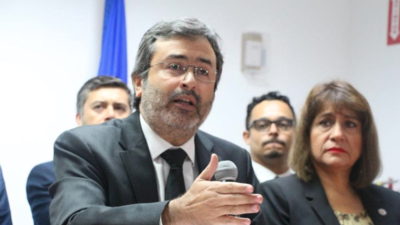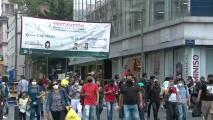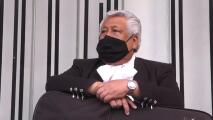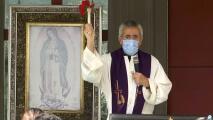OAS anti-corruption mission denounces Honduran law blocking investigation of Congress

An international commission to root out corruption in Honduras has denounced recent legislative changes that block its investigation of lawmakers on charges of embezzling public funds.
The Organization of American States’ anti-corruption mission in Honduras says that the changes would obstruct ongoing and future investigations and could potentially allow imprisoned public officials to challenge their convictions.
The mission said in a statement Wednesday that the Jan. 18 reforms require all public spending to be evaluated by the country’s Court of Auditors for a period of three years. During that time, no civil or criminal judicial action can be taken.
The changes would freeze one case brought by Honduran prosecutors in December that allege public money was funneled into the bank accounts of five lawmakers.
"What has happened is very serious," said Juan Jiménez, the former Peruvian prime minister who heads the Mission to Support the Fight against Corruption and Impunity in Honduras (MACCIH). He read a statement describing the new law as an "impunity pact."
Jiménez demanded that Congress repeal the law, adding that he was asking for an explanation from the government to explain how it's possible that an emitted regulation "seeks impunity for people who know they are being investigated."
He revealed that during a Nov. 29 judicial operation the mission had seized the financial accounts of more than 60 serving and former members of Congress who received public funds. Among those under investigation is the former first lady, Rosa Elena Bonilla, and the president of the Congress.
The news sparked a strong reaction from the U.S. embassy in Honduras only days before President Juan Orlando Hernández is due to be sworn in for a second term after a controversial re-election marked by mass violent street protests.
The Congress said in a statement that the changes do not imply impunity, but rather “promote transparency and accountability” by tracking the movements of all resources intended for social and community projects. It denied that federal prosecutors would be in any way constrained, and reminded the MACCIH to mind its own business and refrain from interfering in the independence of the country's institutions.
The new law was a violation of the international agreement that set up the OAS mission in the wake of a massive scandal involving the Honduran Social Security Institute, Jiménez said, adding that the Court of Auditors could not be trusted to handle the cases as it lacked political independence.
"We came here to do a serious job ... but that's not possible if there are no clear rules to investigate," he said, visibly upset. "If we begin an investigation, it can't be blocked ... this a pact of impunity that we are bringing to the attention of the Honduran people."
He went on to describe the alleged misuse of public funds by Congress via port-barrel handouts supposedly designed for local projects. "This has been a way to drain public monies ... an operative system to divert state funds that end up in the pockets of the members of Congress for them to use, not for projects, but for their own pockets," he said. "How good it would be if state funds destined for social programs were devoted to the people in a country with 60% poverty like Honduras. But no, unfortunately, the political class took the funds for themselves."
The MACCIH was created to fight corruption and impunity in the country, including training and certifing special judges and investigating acts of corruption.
(This article has been corrected. A previous version mistakenly mentioned that the current First Lady is being investigated by the OAS for corruption. It should have referred to former First Lady Rosa Elena Bonilla.)



